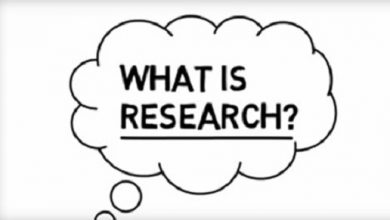Types of interview in research/characteristics/parts/objectives
Interview
The interview is a research method where information is obtained through a dialogue between two or more people. Through the interview “communication is achieved and the joint construction of meanings regarding a topic.” Types of interview in research
In general, we associate the concept of “interview” with the activity carried out by journalists or presenters on television or other mass media. However, the research interview tool is much more comprehensive.
The interviewer is the person who leads the conversation, the interviewee is the person from whom you want to obtain the information.
What are the characteristics of the interview?
- They can be quantitative or qualitative.
- They must be recorded: on video, on audio or through note-taking.
- Interviews can be conducted face-to-face, via telephone or digitally.
- They follow a sequence of questions, from the easiest to the most complicated.
- The questions should be neutral, short and punctual.
- They are usually individual, but can be established in small groups.
- There is an interactive relationship between interviewee and interviewer. Types of interview in research
Interview types in Research
Interview in social research
- Unstructured or open interview : sometimes called life stories, in this interview the researcher tries to understand the point of view or the situation of the interviewee. For example, if you want to discover the experiences of a teacher in a rural community, the ideal is to interview her directly. The participant expresses himself freely, with few directions from the interviewer.
- Semi-structured interview: the interviewer wants to know specific information that he can compare and contrast with information obtained from other interviews. For example, if you want to know the opinion of the teachers regarding the use of the cell phone at school, a semi-structured interview would be carried out.
- Structured interview : they are frequently used in marketing research. The interviewer asks a predetermined series of questions that can be asked in person, over the phone, or digitally.
Quantitative interview
The quantitative interview seeks to obtain responses from different people that can then be quantifiable. It is characterized by: Types of interview in research
- Defined duration limits.
- Standardization of the instrument for application to all participants.
- Individual, to prevent other people from giving their opinion or altering the interview in any way.
- Little or nothing anecdotal.
- Closed questions, with minimal rebuttable elements, extensions and probes.
- The interviewer and the questionnaire itself control the pace and direction of the interview.
- The interviewer tries that his communication pattern is similar.
- Presentation of the answer options visually to the interviewees.
Qualitative interview
The qualitative interview is defined as a meeting to talk and exchange information between one person (the interviewer) and another (the interviewee). It is characterized by:
- Be more flexible and intimate.
- Indefinite duration limits.
- Questions can be customizable to the participant.
- Open and neutral questions.
- Anecdotal and personalized. Types of interview in research
Other types of Interview
Job interview
The job interview or job interview is a meeting that takes place between the recruiter (s) of a company or institution and the candidates or applicants for a position in that place. In this interview, the skills and abilities of the candidate are investigated to carry out the function for which he will be employed.
Journalistic interview
The interview in journalism is a basic tool to obtain information. The execution is carried out by the journalist or social communicator who manages the strategies to present and interact with the person interviewed.
Clinical interview
It is the interview carried out by professionals in the health area to determine the physical and psychological state of a patient. Types of interview in research
What are the parts of an interview?
Planning
- Identification of the interviewee : this includes contacting the interviewee, preparing a question guide and the method of recording the information.
- Preparation of the meeting : punctuality and good presence with the interviewee.
Execution
- Beginning of the interview : it is the first phase of the interview, where consent and permission to proceed with it is requested and the interviewer is in tune with the interviewee.
- During the interview : the development part of the conversation where the researcher shows empathy and actively listens to the interviewee. Types of interview in research
- End of the interview : it is the closing of the conversation.
Post-interview
- Summary and transcription : process of transcription of the recording and / or review of the notes taken during the interview.
- Analysis : what did the interviewee say and why.
- Acknowledgment : communicate to the interviewee the importance of their participation in the research.
What is the interview for/objectives?
- Qualitative data collection : when the study problem cannot be observed or it is very difficult to do so due to ethics or complexity.
- Application of questionnaires : to ensure the completion of questionnaires, a qualified person asks the questions of each interviewee and records the answers.
- Record a person’s experiences : The purpose of the interview is to obtain answers in the language and perspective of the interviewee. Types of interview in research
- Therapeutic tool : health professionals apply the interview to understand the situation of the patient / client and apply techniques for their treatment and / or personal development.


